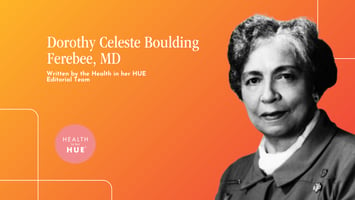In the scorching heat of the Mississippi Delta during the 1930s, Dr. Dorothy Celeste Boulding...
Dr. Rebecca Lee Crumpler
 In the history of medicine, certain names are etched in gold—those who defied the odds, broke down barriers, and dedicated their lives to healing. Dr. Rebecca Lee Crumpler is one of those names. In 1864, she became the first Black woman in the United States to earn a medical degree, a feat that was nothing short of revolutionary at a time when both racism and sexism sought to keep Black women out of medicine.
In the history of medicine, certain names are etched in gold—those who defied the odds, broke down barriers, and dedicated their lives to healing. Dr. Rebecca Lee Crumpler is one of those names. In 1864, she became the first Black woman in the United States to earn a medical degree, a feat that was nothing short of revolutionary at a time when both racism and sexism sought to keep Black women out of medicine.
But Dr. Crumpler’s legacy extends far beyond that historic first. She was a fierce advocate for maternal and child health, dedicating her career to providing care for freed enslaved people in the aftermath of the Civil War. She saw the devastating impact of racism in healthcare firsthand and worked tirelessly to ensure that Black mothers and babies received the medical attention they deserved.
Her story is one of resilience, service, and an unwavering commitment to the health of Black communities—a fight that continues today.
Breaking Barriers in Medicine
Born in 1831 in Delaware and raised in Pennsylvania, Rebecca Lee Crumpler’s early exposure to caregiving came from her aunt, who often provided medical care to sick neighbors. This sparked her interest in medicine, leading her to work as a nurse for eight years—long before formal nursing schools existed.
Determined to advance in the field, she applied to the New England Female Medical College in Boston, the only institution at the time that admitted women into medical programs. With the backing of doctors who had seen her work firsthand, she was accepted and, in 1864, became the first Black woman in the U.S. to receive a medical degree.
Her achievement was groundbreaking—but it was only the beginning.
Healing a Nation: Caring for Freed Black Communities
After the Civil War ended in 1865, millions of newly freed Black people were left without access to healthcare. The medical system, deeply segregated and often hostile toward Black patients, refused to treat them. Recognizing this crisis, Dr. Crumpler moved to Richmond, Virginia, to serve freed Black families through the Freedmen’s Bureau.
She was one of the few Black doctors providing care in the South during this time. Black mothers and children were particularly vulnerable, suffering from high rates of disease and malnutrition with little to no medical support.
Despite facing rampant racism—white doctors often refused to work alongside her, and some pharmacists refused to fill prescriptions she wrote—Dr. Crumpler persisted. She saw medicine as a mission, not just a career, and made it her life’s work to ensure that those who had been ignored and oppressed received the care they needed.
After her time in Richmond, she returned to Boston and continued her practice, focusing on maternal and pediatric health.
A Lasting Legacy: A Book of Medical Discourses
Dr. Crumpler’s impact wasn’t just in the patients she treated—it also lived on in her words. In 1883, she published A Book of Medical Discourses, one of the first medical texts written by a Black person.
The book focused on the health of women and children, offering guidance on pregnancy, breastfeeding, and disease prevention. It was her way of ensuring that even those who couldn’t access a doctor could still learn how to care for themselves and their families.
Her work laid the foundation for Black women’s leadership in medicine and public health. Today, Black women physicians, doulas, and maternal health advocates continue the fight she started.
Dr. Crumpler’s Legacy in Today’s Fight for Black Maternal Health
More than a century later, Black women still face alarming disparities in maternal healthcare. Black mothers in the U.S. are three times more likely to die from pregnancy-related complications than white mothers. This crisis makes Dr. Crumpler’s legacy more relevant than ever.
Her story reminds us that Black women have always fought for our right to quality healthcare, and we must continue that fight today.
Want to learn more about the Black women shaping reproductive health today?
📖 Read: Honoring Black Women’s Impact on Reproductive Health & the Future
💜 Join the Health In Her HUE Community! Find culturally competent doctors, share your experiences, and connect with other Black women advocating for our health.



